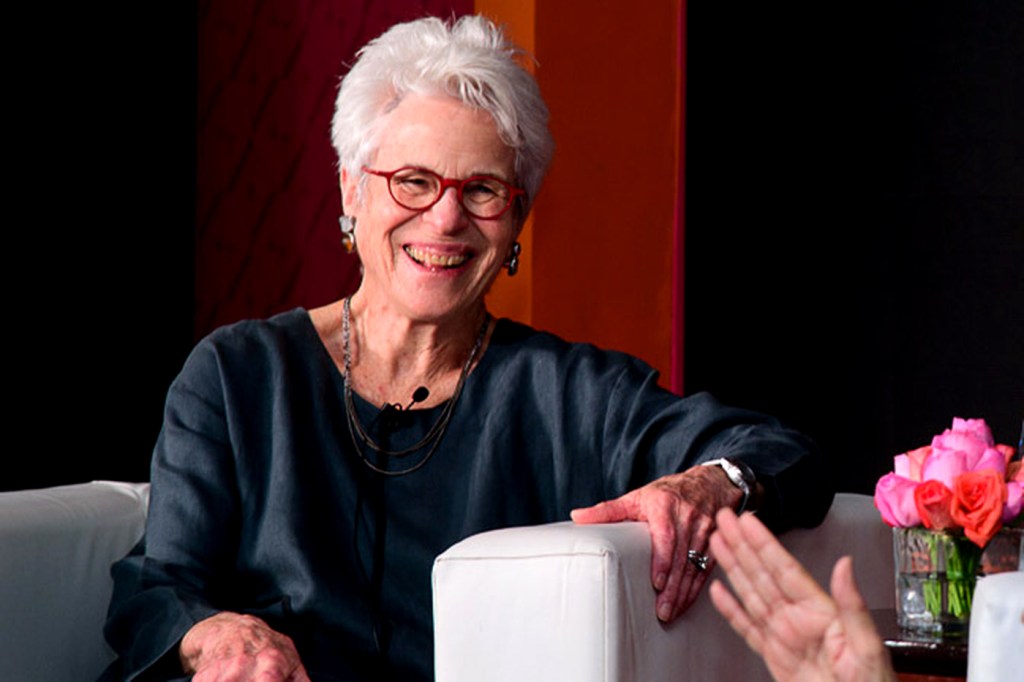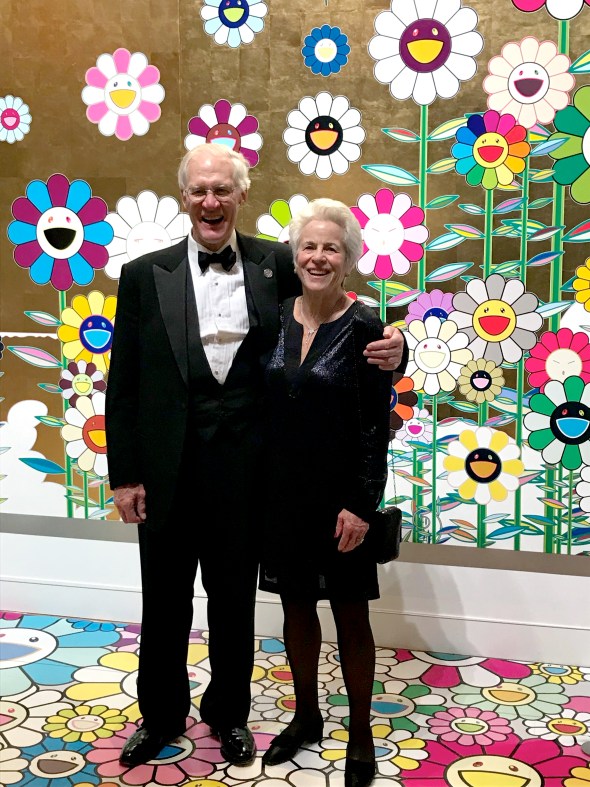Northeastern launches the Burnes Center for Social Change

Northeastern University is launching the Burnes Center for Social Change to honor and fulfill the vision of the Burnes family, and honor the legacy of the late Nonnie Burnes, the humble and ebullient Massachusetts Superior Court judge who championed the needs of people from all walks of life.
The center, which was a priority for Nonnie Burnes even as she fought the cancer that claimed her life, seeks to become the preeminent center for developing problem-solvers to take on climate change, racial justice, urban education reform, and other intractable public problems.
It is being funded by a $20 million gift from the Burnes family, including Nonnie, her husband Richard and their three children, who will be driving forces behind the mission to deliver flagship programs in education, research, and advocacy, while continuing Nonnie Burnes’s vision of fighting for social justice and equity.

“She was a problem-solver,” Richard Burnes says of his late wife. “She didn’t like constraints on people and she wanted everybody to have the same opportunity.”
Richard Burnes says the idea for the center germinated from a conversation between Nonnie Burnes and Joseph E. Aoun, president of Northeastern, on how best to effect change.
“Nonnie and Rick Burnes have been lifelong champions for social change, and the Burnes Center is the embodiment of their passion and dedication,” said Aoun. “You have to start with the world to make real change happen. Northeastern and the Burnes family share this ethos. This gift will empower the important work of real world impact and social change for generations to come.”
A driving principle of the Burnes Center is that social innovation is a learnable skill that can be taught, nurtured, and empowered, says Beth Noveck, the center’s founding director. Technology and data will be empowered by grassroots community efforts of people drawn together from a diversity of backgrounds and ambitions to identify problems, strategize solutions, and collaborate on meaningful change.
The center is a fulfillment of the belief, driven by the Burnes family, that “we need to invest in helping mission-driven leaders take their projects from idea to implementation,” says Noveck. “What was so impressive about Nonnie was her fierce commitment to social justice and social change, combined with a true sense of warmth, of stillness, of peace. On the one hand, she was a lioness and a fighter; and on the other hand, it was just so calming to be in her presence, and so inspiring.”
The center became a key focus for Burnes after she was diagnosed last year with kidney cancer. It is launching at Northeastern nine months after her death last August at age 79.
“‘She told me, ‘I have a lot I want to do and I don’t know how much time I have, so we’d better do it fast,'” says Diane MacGillivray, senior vice president for university advancement at Northeastern. “She said the center was the most important thing that she wanted to achieve.”
A colorful and tireless personality who pursued adventure without flaunting her success, Burnes left a partnership at a leading Boston law firm to become associate justice of the Massachusetts Superior Court in a pioneering role among women. Presiding over cases that victimized children grew to be devastating to Burnes, her husband says, providing context that underlines the Burnes Center’s commitment to improving urban education.
“People in most big cities don’t realize just how bad the school systems are,” Richard Burnes says. “Nonnie used to say that she could tell the kids that were going to get in trouble in her courtroom. She’d say some of the brightest kids haven’t been taught to read properly.”
Burnes was a trustee of Northeastern, her alma mater, as well as a senior university fellow at the School of Public Policy and Urban Affairs. She supported the disenfranchised while creating scholarships for law students who were focused on social change. She had been a board member and chair of Planned Parenthood League of Massachusetts since 2012. As commissioner of the Massachusetts Division of Insurance, she instituted long-sought reforms that increased competition and lowered costs for drivers.
As Burnes developed the plans for her center, she came to view it as a source of stubborn optimism, an antidote to the polarization and divisiveness that has neutralized the levers of societal change. The U.S. public remains steadfastly hopeful of the center’s mission despite the ongoing partisan culture wars: 57% of adults believe Americans can find ways to resolve the country’s problems, according to Pew Research Center, and 65% of millennials say they expect to make a difference in the world through their work.
The Burnes Center will provide more than a home for people who yearn to make a difference. Activists will be provided with resources, mentors, and practical strategies to help strengthen their focus and deepen their resolve.
The center will serve a diverse constituency of problem-solvers, including government professionals who possess a first-hand understanding of bureaucratic problems as well as solutions that can help people; activists who work on behalf of nonprofit and for-profit organizations; and students and other individuals who dream of contributing to a community that will take action.
“We are not building an empire; we are building solutions,” said President Aoun.
It was at Northeastern that Burnes found a long-term partner in pursuing larger reform. A School of Law graduate who earned her degree after she had raised her children, Burnes served as a Northeastern trustee from 2000 to 2010, helping to guide the university through its fundamental transition to become a world-class research university. Among her enduring achievements is Northeastern’s Public Interest Law Scholars Program, which she created to provide financial support for law students with experience in social justice.
The center will identify critical challenges that impact communities, such as issues in the K-12 public education system. It will convene stakeholders from across industries, including academia, government, and industry to understand every aspect of an issue and design impactful solutions.
At the heart of all efforts will be a focus on listening to communities and adapting to meet needs. Richard Burnes says the center’s work will be judged by the quality of people it attracts and, counterintuitively, by its failure rate.
“I want to see it fail in some things,” he says of the center. “If some of its ideas and experiments don’t fail, they’re not trying hard enough. They’re not reaching out for enough.”
For media inquiries, please contact Shannon Nargi at s.nargi@northeastern.edu or 617-373-5718.






